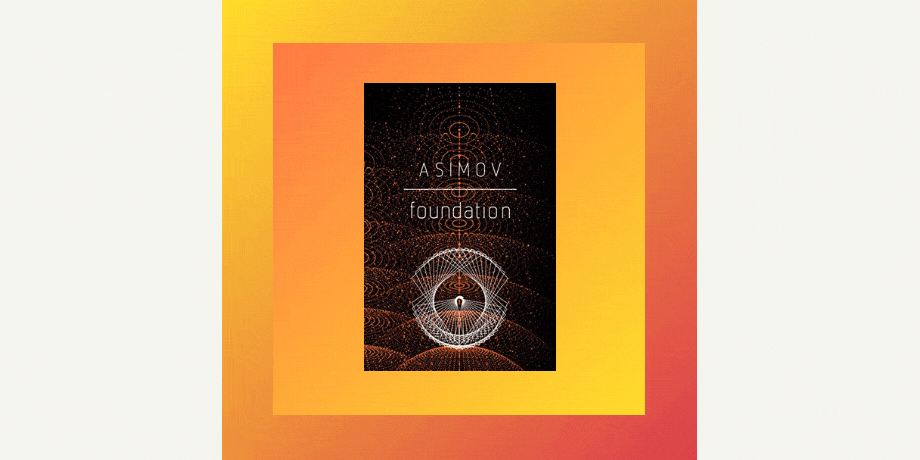"Foundation": A Slow Reading Month in May

Super Slow Month
I only read one book in May, and that cushion I built for my 2021 goal in April is officially gone! This wrap-up is pretty late because, as I said in the last post, I have been working on many things the past couple of months, and I'm still working my full-time job. However, I hope you continue to read because this is a book you will either hate or love.
What is Foundation About?
Foundation is the first book of five (not including the 2 prelude books later published) in a science fiction series by Isaac Asimov. At 224 pages (in my edition), it is a fairly short book comprised of five short stories that span over 150 years. It follows the political maneuvers and the "Seldon Crises" while a new empire takes shape and another deteriorates.
Why Some People Dislike the Book
This is not an action-packed story. Some would say that the story is dry. Also, keep in mind that the book was written in the 1940s, so the representation of women was limited to one with a dialogue role. She wasn't a great character. If you enjoy books where you get invested in the characters and get into their minds really well, this is not that book. One of the complaints I saw online was that the characters are one-dimensional. I really enjoyed it and gave this book 4.5 stars. It was almost one of my favorites.
Why I Enjoyed the Book So Much
This book did not have traditional characters to me. Instead, we don't get to know the individual characters too deeply. The "Seldon Crises" is really the main character, and since it is a concept, you can miss some of the early threads until you get used to the style. The people are only pawns in the scheme of things, and we see everything take shape over the timeline of the 150 years.
Personally, the story was not dry because I think I went into the story expecting more of a political science fiction where the maneuvers being made were more important than the people making the moves. Also, the writing reminded me of other classics and even the Bible, where descriptions are lacking, but when they are introduced, they are important to the point being made. I paid more attention to the descriptions when I realized the book was not super detailed.
I love books with some commentary. Two that stood out to me were Asimov's commentaries on religion and humanities habits.
The author made a point to discuss how religion can be used to control and manipulate people. We see that in a big portion of the book. However, this is not a new idea and will continue to happen throughout history. As a believer, I think we are called first to be examples even in light of those who use Christianity (or any other belief) as a weapon. And maybe this is the author's belief coming through the page. Still, I took this commentary as an example of the fact that, historically, sinful people will use religion as a way to maintain power and wealth. I agreed with a lot of the discussion but disagreed with the conclusions made.
Subscribe to The KWICK Newsletter
Another concept was the discussion on psychohistory. It brought both a question and an idea to my mind as I was reading.
The question I think the author presented was, can select humans change the course of our collective history? I tend to agree that humans banding together can change the path we may be hurdling down. One person can be the spark to start the fire of change. But then Asimov made me ponder, does one group then decide what path that should be? Throughout history, we can see the success and failures of that.
Next, it brought the idea that empires slowly die and kill themselves by war and intellectual stagnation. While simultaneously another empire is slowly being born with some political maneuvering, people with curiosity pushing the limits, and a lot of luck. I couldn't help but think of the time we are currently living in. The world is changing fast, and "future empires" can leave the "empires" from today in the past over the next 100 years.
Some of my Favorite Quotes
- “Never let your sense of morals prevent you from doing what is right.”
- “Violence is the last refuge of the incompetent.”
- “To succeed, planning alone is insufficient. One must improvise as well.”
- “Now any dogma, based primarily on faith and emotionalism, is a dangerous weapon to use on others, since it is almost impossible to guarantee that the weapon will never be turned on the user.”
- “The fall of Empire, gentlemen, is a massive thing, however, and not easily fought. It is dictated by a rising bureaucracy, a receding initiative, a freezing of caste, a damming of curiosity—a hundred other factors. It has been going on, as I have said, for centuries, and it is too majestic and massive a movement to stop.”
- “With the destruction of our social fabric, science will be broken into a million pieces. Individuals will know much of exceedingly tiny facets of what there is to know.”
Conclusion
It is hard for me to recommend this book to people. It is short, so it's easy to get through. However, this is an old book with many quirks modern readers may not enjoy. If you are a reader who enjoys reading a book before an adaptation, then definitely pick this book up. If you are a science fiction aficionado, then this may be a book for you. But if you are getting back into the swing of reading, I would skip this book for now. Pick up a faster-paced book that'll keep you hooked.
If you need some recommendations, check out my Goodreads. And then follow me on Instagram and Twitter.
